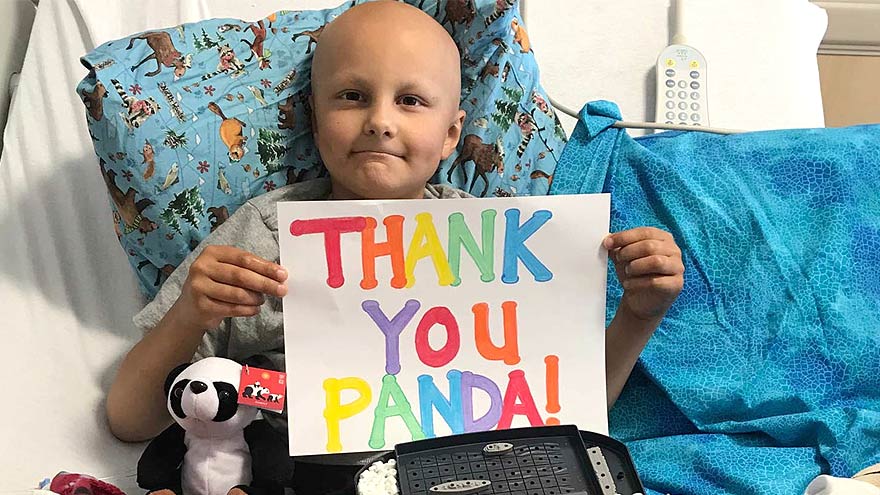Buscar
-
Why Childhood Immunizations Are So Important
Immunizations save thousands of lives each year by preventing serious illnesses, hospitalizations, and deaths. They also protect those who can't be vaccinated, like young children and the elderly, through herd immunity. Dr. Vanessa Slots highlights the crucial role of vaccines. Immunizations Your Child Needs (and when) Birth to 6 Months Hepatitis B: Shortly after birth, first vaccine dose Diphtheria, Tetanus, and Pertussis (DTaP), Polio, Haemophilus Influenza (HiB), Pneumonia, Hepatitis B and Rotavirus: Ages 2, 4 and 6 months, boosters and vaccines One Year to 18 Months MMR and Varicella (chickenpox) vaccine: Age 1, first vaccine dose Hepatitis A, HiB and Pneumonia: Age 1, booster DTaP: 15 months, fourth vaccine dose Hepatitis, second dose: 18 months Flu Vaccine: 6 months and older, annually* *In the year after receiving their first dose, an infant will need a booster one month later. Four Years Old MMRV, DTaP and Polio, final dose: Four years of age Pre-Teen and Beyond Tdap and Meningitis: Before starting middle school, children receive these vaccines. They are also old enough to start the HPV vaccine, an essential vaccine for all young adults to protect against cancer, genital warts and cervical dysplasia.
Read More About Why Childhood Immunizations Are So Important
-
What You Need to Know About RSV
Respiratory syncytial virus, also known as RSV, is a common respiratory virus that impacts the lungs and breathing pathways. The virus can be dangerous for infants and young children and is also concerning for older adults. While most older kids and adults only experience cold-like systems and recover in a week or two, an estimated 58,000-80,000 children younger than 5 years old are hospitalized due to RSV each year, and in 2022 healthcare organizations across the country are experiencing higher infection rates than in years past. "We are experiencing a strong RSV season and do not expect it to go away anytime soon," said Dr. Kris Wilson, Division Chief of Renown Children's Primary Care. "Infants who are infected with RSV almost always show symptoms of runny noses and cough. Call your healthcare provider immediately if your child is having difficulty breathing, is not drinking enough fluids, or is experiencing any worsening of these symptoms.” Symptoms of RSV: Runny nose Decrease in appetite/inability to drink Dry diapers, an indication of dehydration Cough, which may progress to wheezing or difficulty breathing Irritability (most common in very young infants) Decreased activity (most common in very young infants) Decreased appetite (most common in very young infants) Apnea, pauses in breathing for more than 10 seconds (most common in very young infants) What to do if you think your child has RSV: Call your pediatrician! If you suspect your child might have RSV, consulting their healthcare provider is the best first line of defense. From here they will help you build an appropriate treatment plan for child. Keep in mind that many pediatrician offices offer 24/7 call lines. If your child is experiencing retracted breathing (when the area between the ribs and in the neck sinks in when a person attempts to inhale), dehydration (not drinking and decrease in wet diapers) or apnea (pauses in breathing for more than 10 seconds) please call 911 or go to the closest emergency room.
-
Celebrating World Lung Day in Northern Nevada
In the United States, electronic cigarettes are the most popular form of tobacco product used among high school students. Approximately 21% of Washoe County area high schoolers report current use of e-cigarettes, higher than the national average of 14% reported in the most recent national data. While often viewed as a safer alternative to traditional cigarette use, e-cigarette use, commonly referred to as vaping, exposes users to nicotine and harmful chemicals that stunt brain development, results in lung damage and harms overall health. In partnership with Reno area school principals and nurses, the Renown Health – UNR Med Clinical Research Office was able to provide this year’s World Lung Day Anti-Vaping Program to Galena High School, Robert McQueen High School and Sage Ridge School, reaching hundreds of high school students.
Read More About Celebrating World Lung Day in Northern Nevada
-
How to Talk to Your Children About Vaping
According to the Centers for Disease Control (CDC), e-cigarette use isn’t just up among adults, but it has also tripled in usage for teens. Dr. Jose Cucalon Calderon, a Pediatrics Physician at Renown Health and an Assistant Professor of Pediatrics at the University of Nevada, Reno School of Medicine, provides helpful insight into e-cigarettes and the dangers it poses to kids and teens. What Are E-Cigarettes? E-cigarettes are electronic nicotine delivery devices. e-cigarettes use liquid nicotine as an alternative to traditional smoked cigarettes. e-cigarettes contain nicotine which is an addictive substance with known toxic side effects that, when released in very high doses, that can have health consequences and causes addiction. Nicotine is described as “toxic,” but the most "toxic" part of e-cigarettes' is everything else within the E-juice. Nicotine mainly keeps people coming back for more. According to the CDC, e-cigarettes are also advertised using the same themes and tactics that have been shown to increase youth use of other tobacco products, including cigarettes. In 2021, approximately 76% of students reported exposure to tobacco product marketing through traditional sources, and approximately 74% of students who used social media had seen e-cigarette–related content. What Does This Mean for the Health My Teen? We know that nicotine can affect brain development in kids and teens, so it is important to educate your teen on the risks of exposure. If you have young children in the home, it is important to be vigilant as well. One teaspoonful of liquid nicotine can be fatal for a young child. How Do I Monitor My Teen for E-Cigarette Use? Monitoring your children can be tricky for parents. E-cigarettes can be harder to detect, unlike traditional cigarettes that were easy to detect by smell and residual odor. E-cigarette use, or “vaping,” is often associated with a dry cough or chronic throat/mouth irritation. Overall, increasing research shows strong links between mental health conditions and posterior combustible tobacco use along with increased risk of marijuana use. Nicotine is addictive, but it does not cause altered mental status like the other drugs of abuse can. All parents are strongly encouraged to talk to their children about the potential dangers of e-cigarettes. What are the health risks of vaping? Vaping devices have been on the market for a relatively short period of time, with evidence-based health effects and complications still being discovered. Vaping effects poses many harmful risks to children and teens. The risks of vaping include: Chest pain Difficulty breathing Dizziness Headaches Impaired response to infection in the airway Inflammatory problems of the airway Nausea Nicotine addiction Seizures Vomiting For more information for both parents and teens about quitting smoking or vaping, you can click here. Parents can also use this tip sheet from the U.S. Surgeon General to talk to their child about vaping. The Substance Abuse and Mental Health Services Administration free national helpline number is 1-800-662-4357 (HELP). It is available 24/7, 365 days a year offering confidential treatment referral and information (in English and Spanish). If you or someone you know is facing a substance (or mental health) problem, please reach out to them.
-
Human Trafficking Happens in Nevada
Each month an average of 5,016 individuals are sold for sex in Nevada. Frequently the victims of human trafficking are women and children. That’s why Renown, along with other community groups, is leading efforts to help victims. Specifically identifying them and connecting them to the support services they need. The purpose is to restore their mental and physical health give them hope for a better life. Supporting Our Community Our goal is to identify victims, providing compassionate care for the complex needs of this vulnerable population. By building partnerships with key agencies and advocates in the community and creating policies around human trafficking, we also aim to transition victims safely to community-based services. Along with training, Renown healthcare workers are armed with pocket guides reminding them how to support human trafficking victims. To provide awareness about this crisis, Renown has implemented four key initiatives: Educate health care providers Execute policies and procedures to identify victims Build partnerships with local law enforcement, emergency services and local advocates Connect victims to crucial community resources Human Trafficking: How You Can Help Awaken acts to transform our community with the ultimate goal of ending commercial sexual exploitation. In 2020, Awaken worked with 173 women and children. Awaken’s programs include a drop-in center, an 18 to 24 month transitional housing program, an educational center for trafficked youth, rental assistance, recovery groups, therapy, tutoring, case management, mentorship, safety, and community. National Human Trafficking Hotline: 1-888-373-7888 Local Emergency: 911 Did You Know?
-
Panda Cares Center of Hope at Renown Children's Hospital
When you have an ill child in the hospital, it is a stressful event. And Panda Express is helping local families support children who need special care. Their generous donation provides much-needed equipment, programs, and resources via the new Panda Cares Center of Hope, Renown Children’s Specialty Center. Their partnership directly benefits patients and their families! The ‘Panda Cares Center of Hope, Renown’s Children’s Specialty Center’ In fact, this new center provides care to not only children, but also comprehensive support to the entire family. Similarly, it creates an environment that reduces stress, promotes healing, and provides a superior patient and family experience. This facility upholds Panda Express’ mission, vision, and values and its four pillars: to directly help fund the emotional, mental, physical, and spiritual needs of children. This center, the first-ever in northern Nevada, will provide care for children who have chronic conditions. In particular, it offers ongoing treatment, health management, and specialty medical services, including: Nephrology Endocrinology Neurology Pulmonary Infectious Diseases Medical Genetics Adolescent Medicine How You Can Help! When you order from Panda Express, you can opt to round up your change, which will help support programs and services, such as the Center of Hope for Renown Children’s Hospital. Order Online A Partnership for Health & Education of Underserved Youth This partnership allows Renown Children’s Hospital to continue to strengthen regional services and increase Panda’s visibility within our growing community. Last year, 21,930 sick children received care from Renown Children’s Hospital. To date, Panda Express has raised $449,200 in financial support to assist us in providing health and education to every child, regardless of illness, injury, insurance, or ability to pay. Panda Express funds have already supported: Giraffe omni beds for the NICU Ultrasound machine for the Children’s ER Panda warmers and a hand held Accuvein machine Child Life Program to support sick patients and families Meeting room in the Children’s Specialty Center In kind donations, volunteer time and support of local events such as the University of Nevada Reno, Wolf Pack Dance Marathon
Read More About Panda Cares Center of Hope at Renown Children's Hospital






